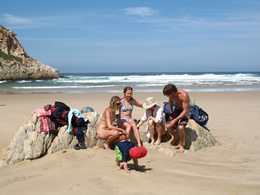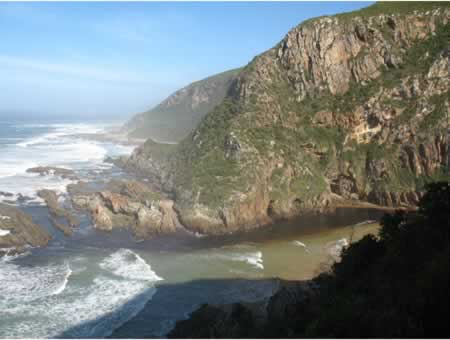

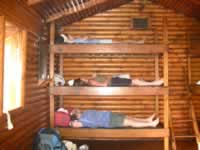
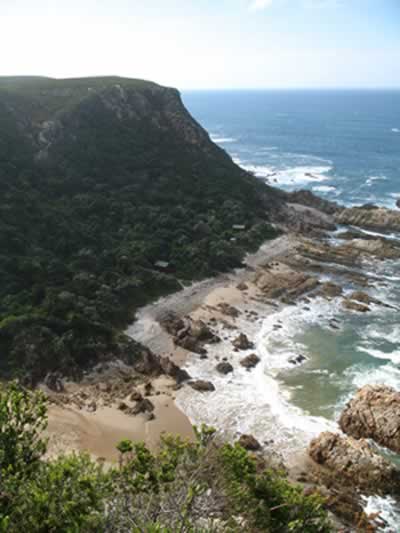
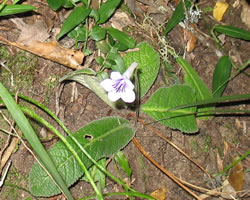
It really was a stunning walk. Even though we were stunned all the time in roughly the same way it bore repetition quite well. The coastline is the tiny remains of a vast coastal hardwood temperate rainforest, destroyed, as rainforests are, by progress. Its last elephants and monkeys perishing quite recently. Its last remaining trees, yellowwoods and ironwoods and suchlike had been carefully labelled for our education.
The progress that had decimated this pristine forest, was mainly the need for sleepers and fuel for the South African railway system and more recently, and more extensively, the clearing of large areas of natural vegaetation for private 'Golf Estates’; quiet places with names like 'Nature's Valley' built for the elderly to retire to where the non-indigenous grass is mowed daily and nothing else is allowed to grow without a permit.
But a small strip of forest remains, a few hundred metres wide along the coast and through this we walked; a relatively short distance but up and down almost vertical valley sides.
Low tide at the Blaukrans was about 11.30 in the morning which meant a 5am headtorch start that day to cover the 10km to the estuary. And it was a moonless night when the spring tide would be high.
What had not struck me, however, is that spring low tides are, of course extra low and so come 11am the Blaukrans was a mere chest high brown trickle about 10 metres wide. We did not need our rucksack rafts, but as we had brought them we felt it was important to do things properly and use them.
Simon's mermaids just removed even more clothes and carried theirs on their heads.
